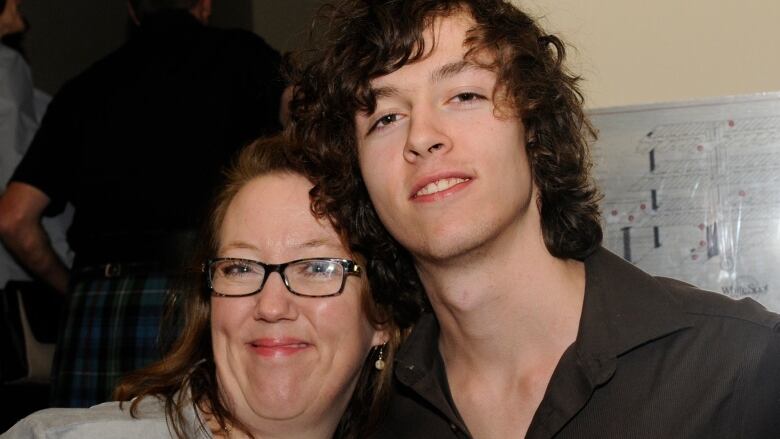Brain injury and addiction claimed her son's life. Now she's pushing for improved care
Bill C-277 calls for strategy 'to support and improve brain injury awareness, prevention and treatment'

Shirley Wilson has experienced the ripple effects of brain trauma first-hand.
The Abbotsford mother's son, Jacob, was run over by a pick-up truck in 2018 when he was 21 and it left him with a brain injury.
Wilson said he suffered from psychosis as a result that caused him significant mental anguish and he turned to street drugs for relief. He died in November 2021 of a fentanyl overdose.
Now, Wilson is with a delegation of British Columbianswho have travelled to Ottawa to push members of parliament (MPs) to passBill C-277, which would trigger the creation of a national strategy on brain injuries.
"C-277 is going to really improve the outcomes for those folks with a brain injury and for our communities in recognizing these are humans too. They're not numbers. Anybody with a brain injury is not a number. They are a person who has a family who loves them," said Wilson, speaking Monday on CBC's The Early Edition.
The delegation, which is 25-strong andincludes people with lived experience and researchers in the field, is in Ottawa this week to attend Question Period at the House of Commons and meet with MPs.
The private member's bill was introduced last year by Alistair MacGregor, an NDP member of parliament from Vancouver Island.
The bill calls for the creation of a pan-Canadian strategy "to support and improve brain injury awareness, prevention and treatment as well as the rehabilitation and recovery of persons living with a brain injury."
Specific recommendations include, but are not limited to, identifying training needs for health-care professionals, improving data collection on incidence and treatment, and establishing national guidelines on prevention, diagnosis and management.
C-277 also includes establishing a task force of policy makers, stakeholders and Indigenous groups as well as people with lived experience and their families to make recommendations to inform the strategy.

"There's still a lot of stigma, lack of recognition. We don't have the adequate tools to identify in the emergency room by first responders. So we need to increase the awareness and education," said Mauricio Garcia-Barrera, a medical researcher from Victoria, also speaking Monday on CBC's The Early Edition.
Garcia-Barrera, who has studied the impacts of brain injuries for three years, is part of the delegation to Parliament.
He said areas of improvement in brain injury care include long-term care where he believes the ball is being dropped, as well as improved education for medical professionals when it comes to recognizing symptoms.
"There's still a lot of stigma, lack of recognition. We don't have the adequate tools to identify in the ER by first responders. So we need to increase the awareness and education," said Garcia-Barrera.
Wilson said it was a challenge to get her son the long-term care he needed because of his substance use, which she says was a coping mechanism after his world was forever altered after his accident.
"My son was rejected multiple times because he was complicated.He was an addict and he had a brain injury," said Wilson. "Recognizing these concurrent disorders is pretty significant and will change how our communities see and view people."
According to the Brain Canada Foundation, approximately 165,000 people are affected by a traumatic brain injury in Canada every year. The foundation expects that, by 2031, traumatic brain injury will be among the most common neurological conditions affecting Canadians.
The foundation's website says resources do not currently meet the demand for services and people suffering from brain injuries are at "high risk of missing a critical window of opportunity for recovery."

With files from The Early Edition













_(720p).jpg)


 OFFICIAL HD MUSIC VIDEO.jpg)
.jpg)



























































































